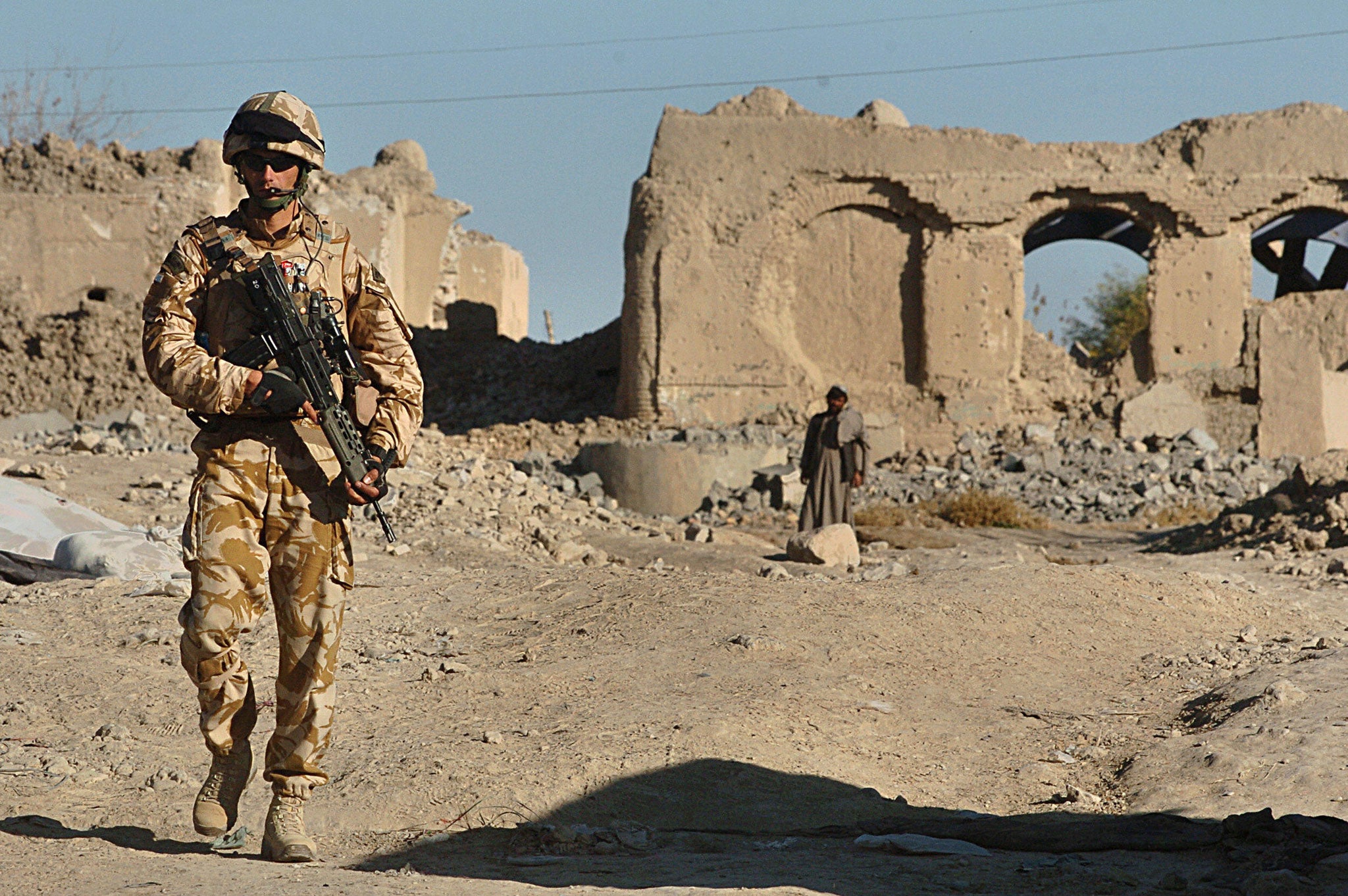Investment in Blood, By Frank Ledwidge
Was it worth it? This indictment of our Afghan venture gives a crushing negative

Your support helps us to tell the story
From reproductive rights to climate change to Big Tech, The Independent is on the ground when the story is developing. Whether it's investigating the financials of Elon Musk's pro-Trump PAC or producing our latest documentary, 'The A Word', which shines a light on the American women fighting for reproductive rights, we know how important it is to parse out the facts from the messaging.
At such a critical moment in US history, we need reporters on the ground. Your donation allows us to keep sending journalists to speak to both sides of the story.
The Independent is trusted by Americans across the entire political spectrum. And unlike many other quality news outlets, we choose not to lock Americans out of our reporting and analysis with paywalls. We believe quality journalism should be available to everyone, paid for by those who can afford it.
Your support makes all the difference.Britain's battle in Afghanistan is drawing to a close and with it comes the beginning of the retrospection that will draft history. Frank Ledwidge's new book attempts to assess the blood and treasure spilled on Helmand's plains and answer the question on the lips of every grieving relative – was it worth it? Investment in Blood is a damning account of the conflict. For those who criticised the operation as a political mistake and strategic disaster, it will reaffirm their greatest fears. For those who have indeed invested blood, sweat and tears, it will prove a deeply depressing read.
The author of the acclaimed Losing Small Wars goes beyond the stories of bravery and self-sacrifice to examine the causes and consequences, the human and financial cost. As a former naval reserve intelligence officer, who went on to work as a civilian adviser in Afghanistan, Ledwidge has impressive credentials. His 25 pages of references bear testament to his meticulous research, and copious Freedom of Information requests. The breadth of interviews is also admirable, though there are few dissenting voices to his theme that thousands of lives have been wasted with nothing achieved. His conclusions are most poignantly summed up by James Milton's poem, "Children of a Lesser War": "No Winston, just windbags; No victory with waving flags; Just body bags and sad parades; Until a sordid peace was made; With nothing solved; Nothing gained."
The first section examines the human cost, starting with the harsh assessment that British troops were sent to fight in the strategically insignificant backwater of Helmand, where historic battles had led to ingrained distrust and loathing from the local population. The largest chapter in this section is devoted to the disturbing topic of how many innocent civilians were caught up in the conflict and killed by UK troops. Here the fog of war is most evident. With limited MoD figures, Ledwidge relies on WikiLeaks, accounts from journalists and compensation payments. As many as 542 non-combatants have been killed by British and NATO forces in Helmand, he assesses.
Ledwidge's conservative estimate is that it has cost £15m. per day to maintain the British military presence in Afghanistan and that the bill will rise, with interest, to £40 billion: £650 for every UK resident. More has been spent on the fight per resident of Helmand, he writes, than they can expect to earn in a lifetime. The only beneficiaries have been development consultants, Afghan drug lords and international arms companies.
The third section, "And For What?", attempts to answer the most vital issue. For all the government's claims of reconstruction, Afghanistan remains a desperate statistic on the UN human development index. Despite tens of billions of dollars in international assistance, the 2009 index ranked the country 181 out of 182 - bottom of the list for access to safe water, enrolment in education and life expectancy. It is burdened with a "ramshackle and corrupt government", produces 85 per cent of the world's heroin (bankrolling the Taliban); there is little evidence the conflict has had any positive effect on reducing terrorism.
Ledwidge suggests that the British, even when so many had lost belief in the cause, succumbed to the deeply embedded culture of persevering to justify the loss of lives, of "pressing on regardless". He says: "There lies the road to defeat." "The Helmand of 2015 will, in all significant respects, resemble the Helmand of 2005. The only British legacy may be the long-vacated patrol bases, their remains scoured by some of the poorest people on the planet for old plastic bottles and ammunition boxes."
Ledwidge saves his last thoughts for the people we promised to protect and the military tasked with the unenviable mission. We must honour our duty of care: "The bitter irony is that none of this would cost more than a tiny fraction of what we have spent on bullets, air transport and aid consultants."
Join our commenting forum
Join thought-provoking conversations, follow other Independent readers and see their replies
Comments